Can the 2018 Apache RTR 160 4V slice through its competition? Let’s find out
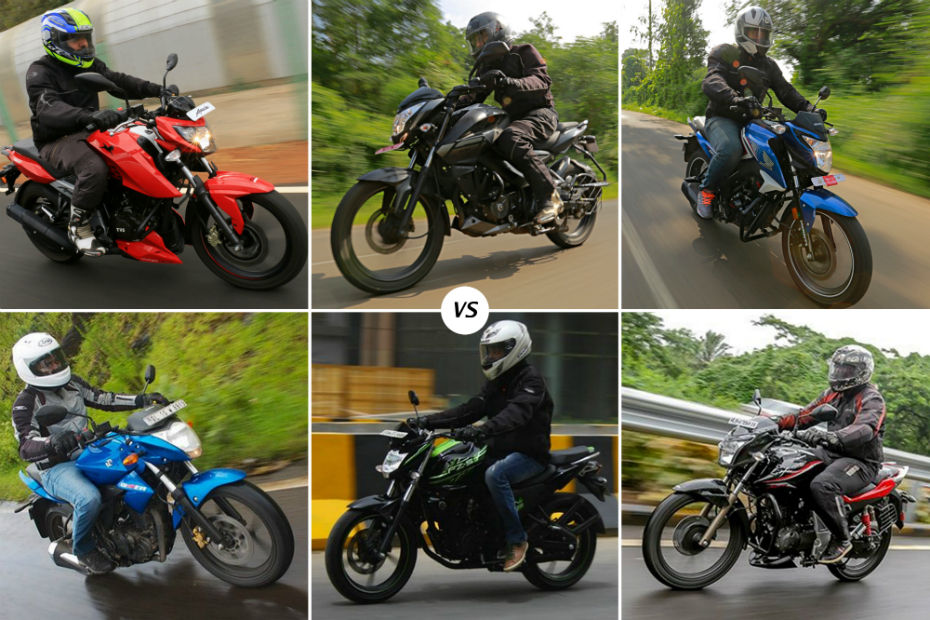
Over the last couple of years, the 150-160cc commuter segment has witnessed some stiff competition between rivals such as the Pulsar NS 160, Suzuki Gixxer, Honda CB Hornet 160R, Yamaha FZ S FI V2.0 and the Hero Xtreme Sports. Perfect for people on a budget, these motorcycles offer everyday practicality and sufficient performance at an affordable price tag. The TVS Apache RTR 160 4V is the latest entrant in this cut-throat segment. And although it is quite easy to confuse the new bike for the 2017 version with newer clothes, it’s actually an all-new motorcycle developed from the ground up. So let’s see how the new kid on the block fares against its competition in terms of specifications.
Engine -
|
|
|
|
|
|
|
|
|
Displacement |
|
|
|
|
|
|
|
Power |
|
16.8PS (Fi)/16.5PS (Carb) |
|
|
|
|
|
|
|
|
|
|
|
|
|
|
The Apache RTR 160's 4-valve head motor is derived from the RTR 200 4V. It’s a 159cc oil-cooled single-cylinder engine that churns out a max power of 16.8PS at 8000rpm and 14.8Nm of torque at 6500rpm. TVS offers the RTR 160 4V in two variants - EFI and Carburetor. When compared to the fuel-injected version, the carbureted variant makes slightly less power at 16.5PS. It also posts the quickest 0-60kmph and 0-100kmph time of 5.04sec and 15.36sec, respectively.
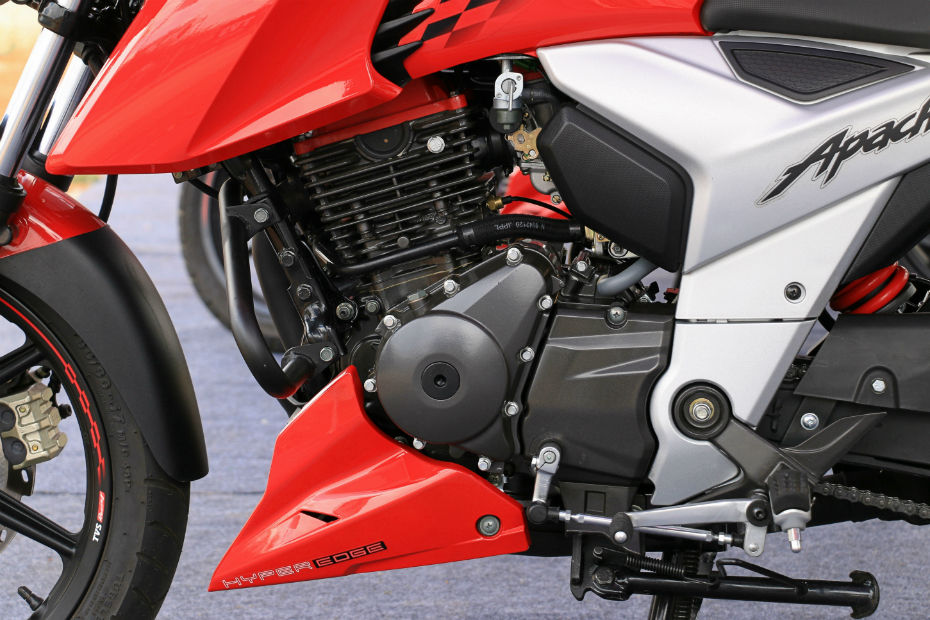
The Pulsar NS 160 and CB Hornet 160R have a power output of 15.5PS. The Hornet, however, makes 0.2Nm more torque than Pulsar’s 14.6Nm.
The second lot comprising the Gixxer 150, FZ S FI (V 2.0) and the Hero Xtreme sports are all powered by 150cc single-cylinder motors. Despite having smaller engines, these bikes are as capable as the other three. The Gixxer, for instance, has a 154.9cc 2-valve single-cylinder engine with power and torque figures of 14.8PS at 8000 rpm and 14Nm at 6000 rpm, respectively.
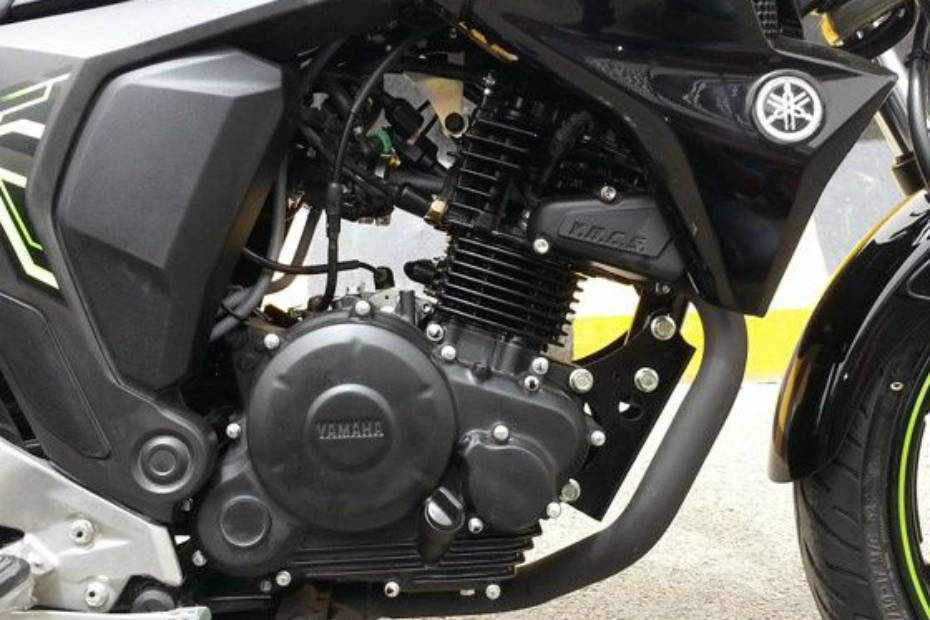
Powering the FZ S is a 149cc fuel-injected single-cylinder powerplant that produces 13.2PS at 8000 rpm and 12.8Nm at 6000 rpm. The Hero Xtreme Sports draws power from an air-cooled single-cylinder motor which produces 15.8PS at 8500 rpm and 13.5Nm at 7000 rpm. All the bikes in this comparison are offered with a 5-speed gearbox.
The Apache RTR 160 4V clearly wins the brawl when it comes to performance figures. However, the Pulsar and the Hornet are not far behind. As for the much-loved Gixxer 150, it produces a decent amount of torque but lacks power when compared to the 160cc machines. While the FZ S has the smallest engine amongst its rivals, fuel injection it deliver a smoother throttle response. It is also better at cold starts and has a relatively cleaner emission figure. The Xtreme is surprisingly powerful on paper. Unfortunately, it is low on torque.
Features -
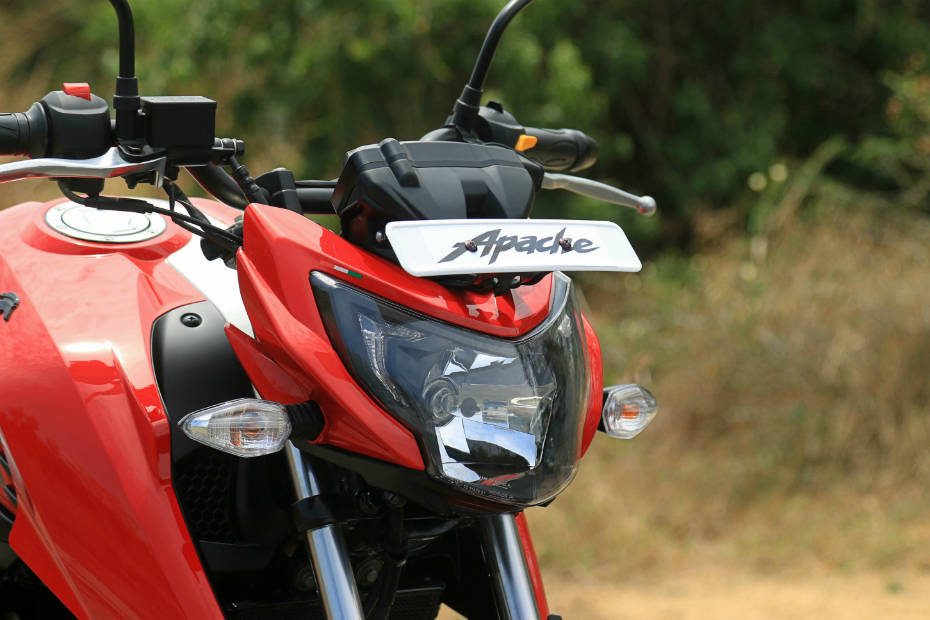
The Apache RTR 160 comes with a full-digital instrument console backlit in white and packs a lap timer, 0-60 timer, and a top speed recorder. It carries the same headlamp and tail light unit as its elder sibling, the RTR 200 4V. The RTR also sports one the best looking engine cowls in this segment and the LED daytime running lights help it stand out from the crowd.
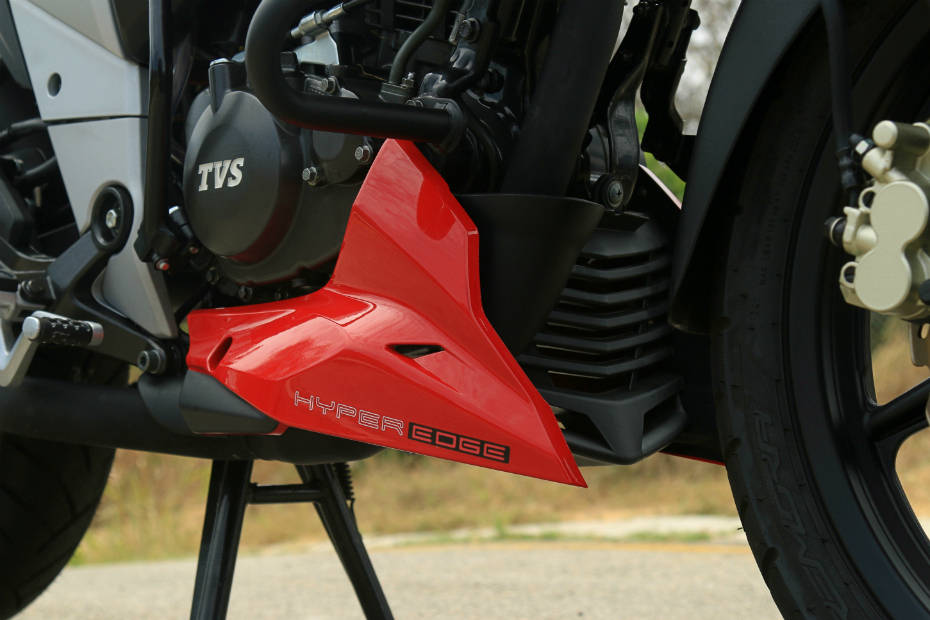
Similar to its elder sibling, the NS 160 feels old school with its semi-digital instrument console, which gets a yellow backlight. It sports an aggressive headlamp, while the tail light is an all LED affair.
The Honda CB Hornet 160R comes equipped with an all-digital instrument console. However, it misses out on an engine kill switch, which is customary nowadays. The headlamp gets a halogen bulb while the tail lamp is equipped with an LED unit designed to look like an ‘X’.
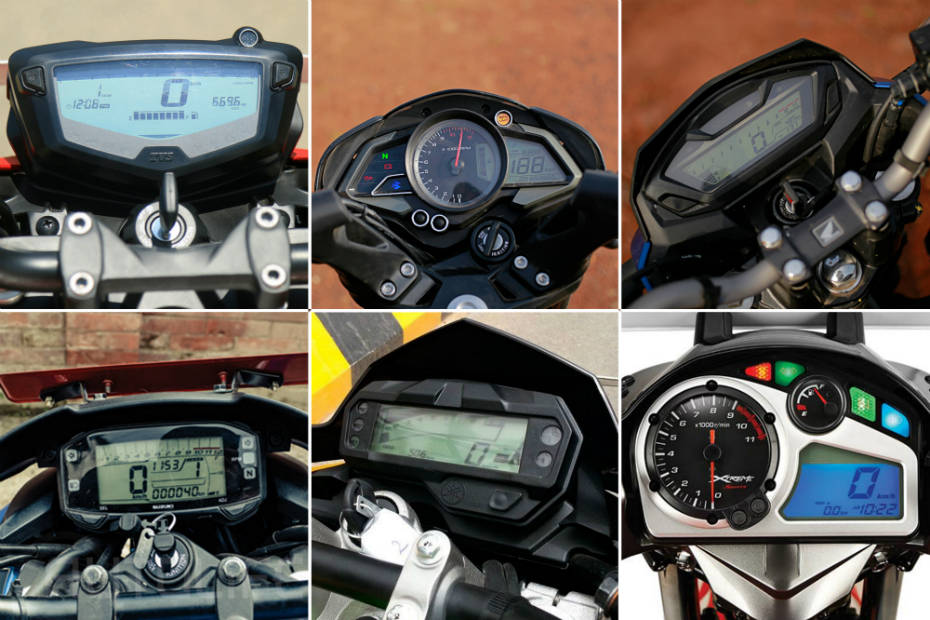
The Gixxer and FZ S have all-digital instrument consoles with essential readouts and headlights with halogen bulbs. Unlike the others, the tail lamp is not an all-LED unit.
The Hero Xtreme’s gets a semi-digital instrument cluster with an odometer, speedometer, fuel gauge and clock. However, it seems a little dated when compared to the rest. It also gets halogen headlamps, LED DRLS, and LED tail lamps. The RTR 160 and Gixxer 150 are the only bikes that boast a double barrel exhaust. However, the RTR sounds more throatier than the Gixxer.
Chassis and Components -
The RTR 160 gets a race-derived double cradle frame, race-tuned Showa telescopic forks at the front and a Showa monoshock at the rear. Braking duties are handled by 270mm petal disc brakes at the front and 130mm drums at the rear. TVS offers 200mm rear disc brakes as an optional accessory too. The 17-inch front and rear alloy wheels are shod with 110/80 section tyres. TVS also offers an optional 130/70 rear tyre for the variant with the rear disc brake. The Apache is the second heaviest bike in the segment with a kerb weight of 145kg. The Hero Xtreme Sports is the heaviest at 147kg. The Pulsar, CB Hornet, Gixxer and the FZ S weigh 142kg, 138kg, 135kg and 133kg, respectively.
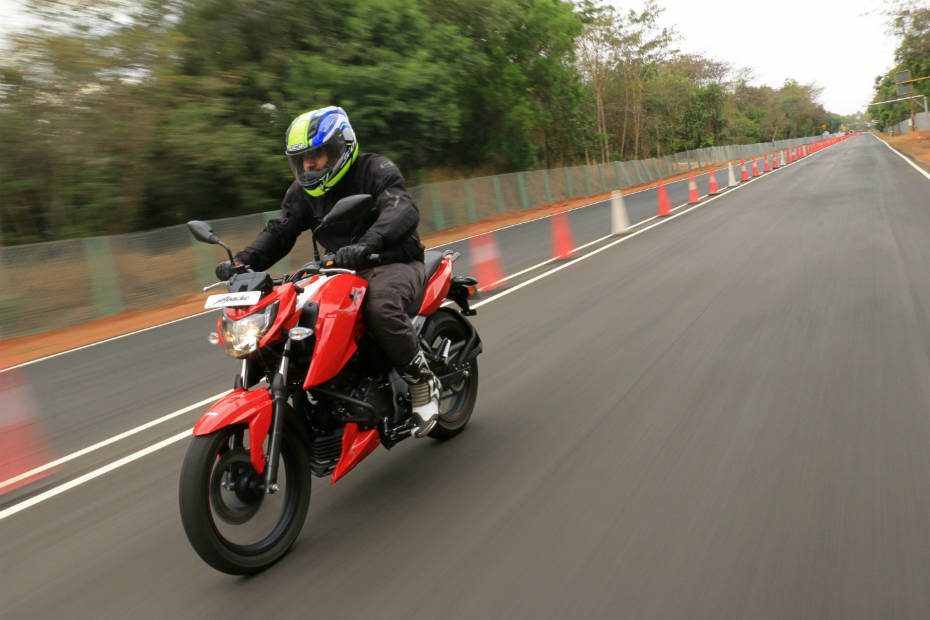
The Pulsar NS 160 is the sole bike in this segment to feature a perimeter frame. Its braking setup comprises of a 240mm disc at the front and a 130mm drum at the rear. Even though the rear drum brake does a decent job, a rear disc could have been offered as an optional extra. Measuring 80/100-17 at the front and 110/80-17 at the rear, the NS 160 looks like it skipped leg day. However, the skinnier tyres come offer sufficient grip while keeping costs in check.
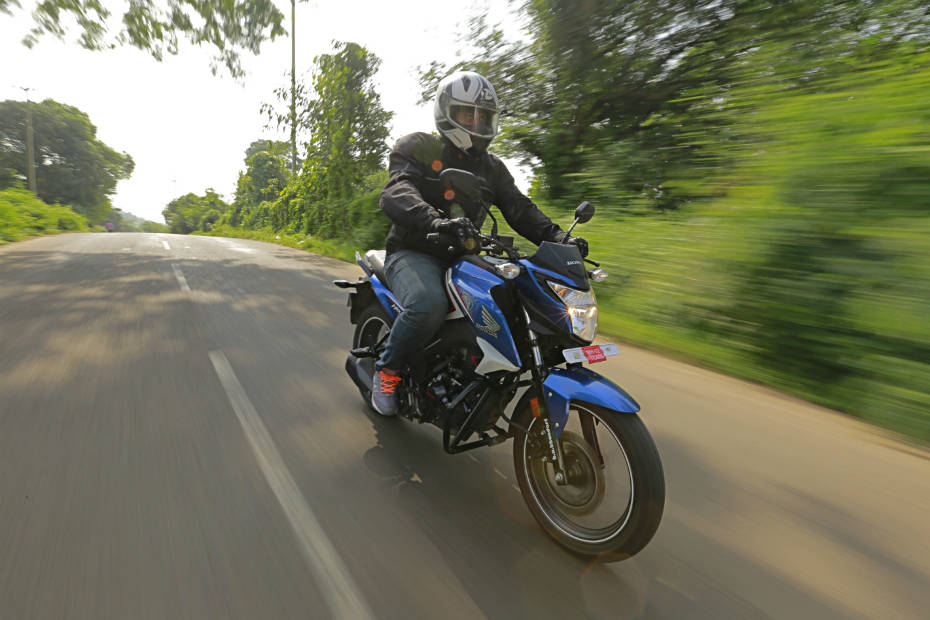
Inside the the Hornet nestles a diamond type frame with telescopic forks at the front and a monoshock at the rear. Moving to the brakes, the Hornet is equipped with 276mm petal disc at the front and a 130mm drum at the rear. Honda’s Combined Braking System is available as an optional extra. This feature improves braking by distributing the brakeforce between both wheels. And if safety tops your list, then Honda also offers single-channel ABS in the STD and DLX variant. Its 17 inch alloys are shod with 100/80 tubeless tyre at the front and a fat 140/70 section at the rear.
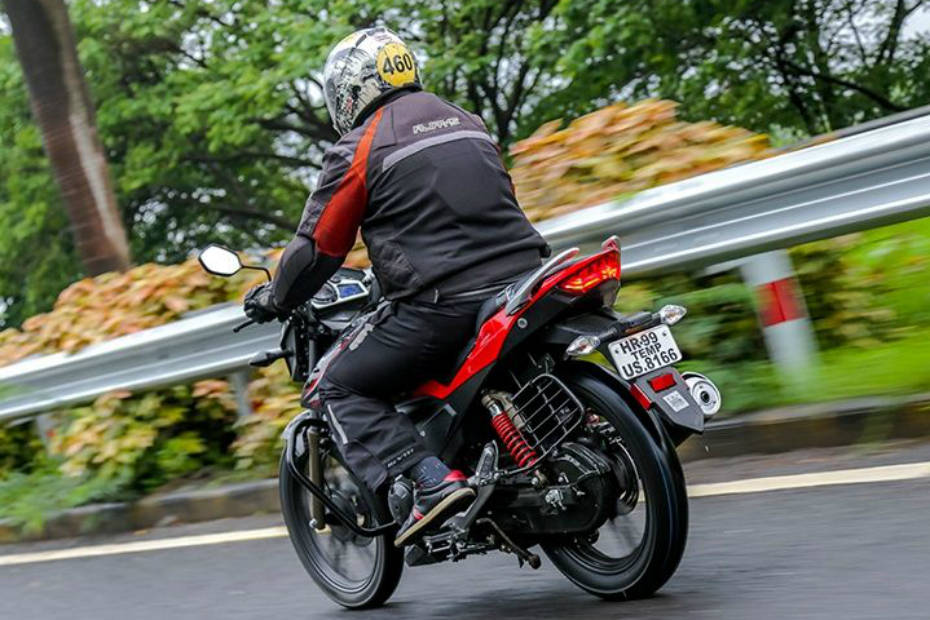
Much like the Hornet, the Gixxer and the FZ S also use a diamond frame and a similar 100-section front and a 140-section rear tyre. The Gixxer 150 will soon be offered with an optional single-channel ABS as well.
Pricing and Verdict -
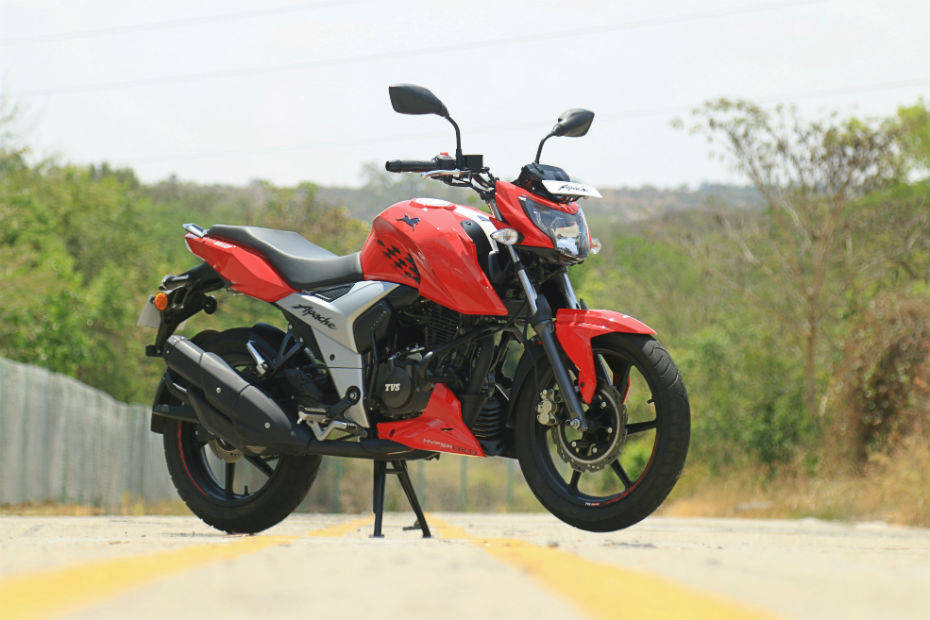
|
|
|
|
|
|
|
|
|
|
|
|
|
STD |
Rs. 81,490 |
|
STD |
Rs. 84,658 |
STD |
Rs. 77,650 |
STD |
Rs. 83,042 |
STD |
Rs. 78,226 |
|
Carburetor Dual Disc |
|
|
ABS |
Rs. 84,675 |
Dual Disc |
Rs. 80,929 |
Dual Disc |
Rs. 86,042 |
Dual Disc |
Rs. 81,269 |
|
Dual Disc |
|
|
CBS |
Rs. 89,158 |
SP |
Rs. 81,929 |
|
|
|
|
|
|
|
|
ABS |
Rs. 93,234 |
|
|
|
|
|
|
The TVS Apache RTR 160 4V wins the comparison and sets a new benchmark with its engine refinement, power-to-weight ratio, and a feature-packed instrument console. The option to choose between carbureted or fuel-injected engine, single or double disc and tyre profiles are also a big plus.
The Pulsar NS 160 is a well-rounded package and makes a strong case for itself thanks to its aggressive styling, which attracts young customers. It’s got an incredible engine and boasts of an aggressive price tag as well.
Although the Hornet is a decent offering from Honda, it’s more suited for buyers who don’t like pushing the bike to its limit, and instead prefer a muscular yet reliable commuter bike.
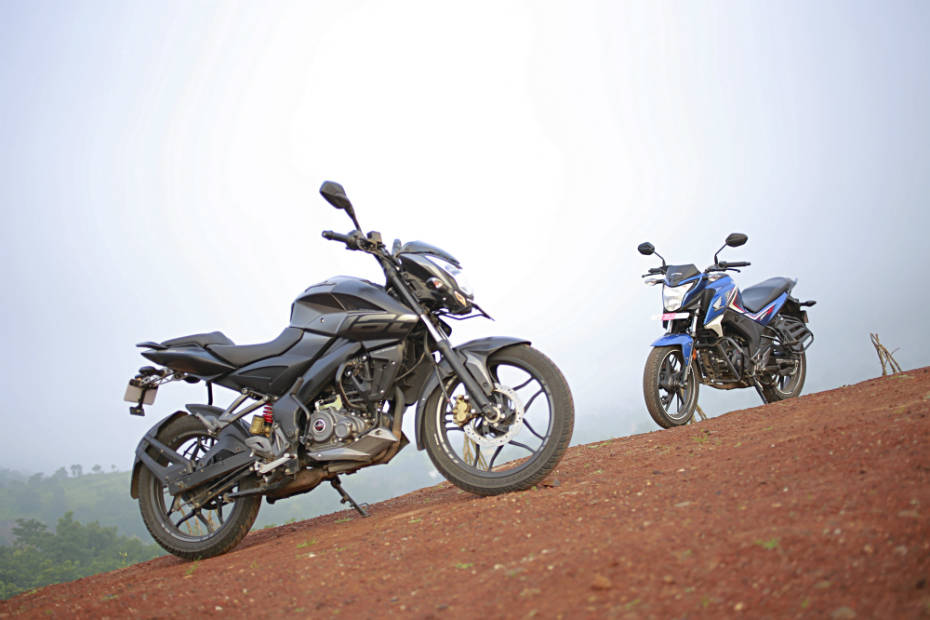
The Gixxer, with its superb engine and suspension, makes for a perfect city-based sports bike. The FZ S is the only one to get fuel injection as standard in its segment and it delivers in terms of build quality and engine refinement as well.
The Hero Xtreme turned out to be a big surprise, at least on paper, as it churned out more power than the Pulsar NS 160.
This Story has not been edited by ABP News. It has been published through bikedekho.com feed directly.




















































